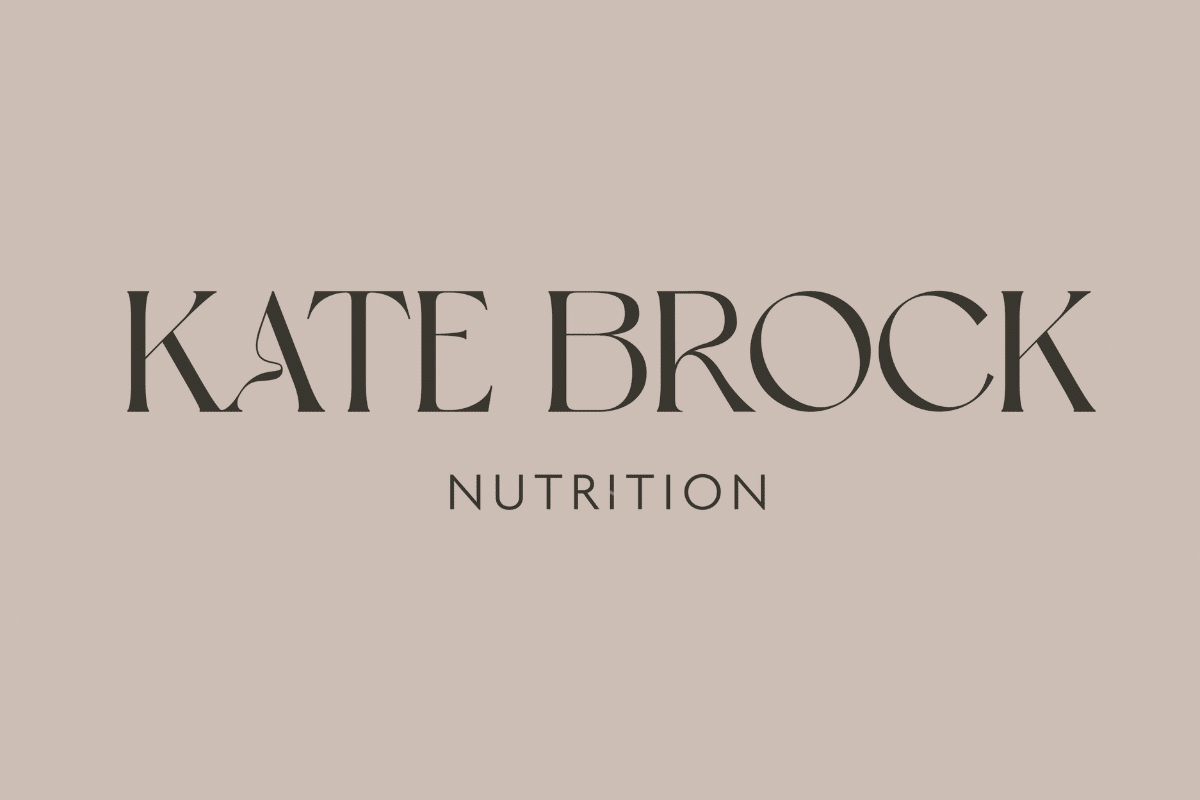You might be thinking your PCOS is something you have to “just deal with” for the rest of your life. But what if I told you there is something you can do, and that the answer to how to manage your symptoms might lie in turning to a Dietitian for PCOS?
PCOS is a condition associated with hormone imbalance and insulin resistance. These two conditions can be managed through making changes to your nutritional habits.
Dietitians are experts on how nutrition and other lifestyle factors impact hormone and blood sugar levels, making us the perfect resource to turn to to help reduce your PCOS symptoms.

Understanding PCOS
It’s important to understand PCOS before contacting a Dietitian to manage your symptoms. If you yourself have PCOS, I probably don’t need to tell you about what it entails.
Polycystic Ovarian Syndrome, or PCOS, is a hormone disorder that affects nearly 1 in 5 women. It develops during adolescence. While its cause are still unknown, it is often associated with insulin resistance and too much of the male reproductive hormone androgen.
PCOS can cause one or more of the following complications:
- menstrual cycle irregularities
- ovarian cysts
- fertility issues such as irregular ovulation, frequent miscarriage, or infertility
- weight fluctuations
- excess body hair
- anxiety and depression
- an increased risk of type 2 diabetes and heart disease
Reading all of PCOS’ potential complications and knowing that there isn’t a way to “prevent” PCOS can feel discouraging. However, there are many ways to minimize PCOS symptoms.
You can prevent serious complications like diabetes, heart disease, and infertility from even getting the chance to develop by making changes to what you eat.

How You Can Manage PCOS through Nutrition
What does a Dietitian have to do with PCOS?
Because PCOS disrupts your hormones and creates insulin resistance, two things are important in lessening symptoms: regulating your hormones and regulating your blood sugar.
A Dietitian for PCOS can help you manage your symptoms by working with you to create a personalized nutrition and supplement plan that is ideal for 1) maintaining a healthy gut microbiome to regulate hormones and 2) keeping blood sugar levels regular.
PCOS and its connection to gut health
To break it down simply:
Your gut health affects your ▶️ hormones, and your hormone levels can either lessen or amplify your ▶️ PCOS symptoms and cause or prevent long-term complications associated with PCOS.
And who better to help you heal your gut (through nutrition) than a Dietitian for PCOS?
Again, Dietitian ▶️ customized nutrition plan ▶️ heal gut ▶️ balance hormones ▶️ reduce PCOS symptoms ▶️ prevent serious long-term complications from PCOS.
This is no pseudoscience – your gut health is directly connected to your PCOS symptoms. It’s also important to note that your hormones impact your physical health and your mental health.
Not only can regulating your hormones regulate your cycle and increase fertility, but it can lower your risk of anxiety and depression, which are sometimes associated with PCOS.

Foods for a Healthy Gut Microbiome
For a healthy gut that keeps hormones regular and your body and mind at its best, a Dietitian for PCOS will likely guide you on how to incorporate the following into your new nutrition plan:
A varied diet: for the gut microbiome, diverse = healthy; eating a wide variety of foods, especially different fruits, vegetables, and grains, will introduce healthy bacteria to your gut that will do a better job at regulating all of your hormones.
Fiber: Fiber feeds the gut microbiome AND regulates blood sugar (a two-for-one deal when it comes to managing PCOS symptoms). Opt for fruits, vegetables, whole grains, beans, and lentils for a diet rich in fiber.
Protein: Protein is another nutrient that is good for gut health and regulates blood sugar. Opt for lean proteins to reduce inflammation since PCOS is sometimes associated with higher inflammation levels. Chicken, turkey, fish, nuts, beans, lentils, tofu, and eggs are great sources of protein for PCOS.
Pre- and probiotics: These are a healthy gut’s best friend! Try a pre- or probiotic drink like kombucha or fermented foods like yogurt, sauerkraut or kimchi to heal your gut and regulate your hormone levels.
While maintaining a healthy gut is amazing for mitigating your PCOS symptoms, it’s only one piece of the puzzle…
PCOS and Its Connection to Your Blood Sugar
Because insulin resistance (aka your body has trouble regulating blood sugar) is so often associated with PCOS, eating foods that won’t spike your blood sugar levels is key. These are known as low glycemic foods.
A low glycemic nutrition plan is all about opting for carbohydrates that spike blood sugar slowly. The lower the impact it has on your blood sugar, the better.
Why not just remove carbs altogether?
Unlike the keto diet, a low glycemic diet isn’t about removing carbs from your plate altogether (not-so-fun-fact: restricting foods is actually associated with increased binging, weight fluctuations, and poor physical and mental health outcomes); it’s about getting to eat what you want while making choices that are healthful for your body.
Whole grains are a great source of fiber and minerals, and they positively contribute to the make-up of a healthy gut. So there’s no need to say “no” to bread and pasta – we are not about restrictions around here!
Low glycemic foods
While there is a list of foods that are high glycemic, a more effective and sustainable approach to creating new nutritional habits is to focus on what you can eat rather than what you can’t. The following are foods that won’t spike your blood sugar and you can feel free to add to your meals.
- Dairy: Milk, cheese and plain yogurt are all foods that won’t send you spiking and crashing.
- Vegetables: Most vegetables are low glycemic, but especially leafy green vegetables like broccoli, spinach, and lettuce.
- Fruits: Apples, oranges, grapes and cherries are all low glycemic fruits.
- Grains and starches: Sourdough bread, steel cut oats, sweet potato, and subbing brown rice for white rice are all great ways to keep carbs in your life without spiking your blood sugar levels.
- Protein: Meat, legumes (beans and lentils), nuts and seeds, and tofu are all foods that won’t mess with your blood sugar.
There are many foods that both feed a healthy gut and do so without spiking blood sugar levels. Incorporating these foods into your meals over time will do more than you think for your PCOS (and your wellbeing).

Not Just Nutrition: Lifestyle Habits and PCOS
Any good Dietitian will tell you that even the most complete nutrition plan and personalized supplement plan can only go so far to manage PCOS symptoms if you’re not considering other lifestyle factors.
Stress management, exercise, and sleep management all play a role in worsening or alleviating PCOS symptoms. The following are some notes on additional steps you can take to avoid hormone level fluctuations and reduce your risk of heart disease, depression, and anxiety.
- Regular exercise: 30 minutes or more per day of moderate exercise, such as brisk walking, bicycling, or swimming, can be combined with nutrition to manage complications associated with PCOS.
- Good sleep hygiene: Getting 7-8 hours of uninterrupted sleep each night is essential to maintaining balanced hormone levels and a strong immune system. This will help prevent more serious long-term effects of PCOS.
- Hydration: It’s not just about what you eat, it’s what you drink. Drinking at least 2 liters per day is recommended for women with PCOS. Replenish your gut, nourish your organs, and keep your mind clear by staying hydrated.
- Stress management: Keep cortisol levels and inflammation low through discovering which stress management techniques work best for you. This could be meditation, journaling, yoga, going for walks, or prioritizing the activities you enjoy. Focus on healing your body through your mind.

Working with a Dietitian: How We Support Women with PCOS at Kate Brock Nutrition
Here at Kate Brock Nutrition, we are a team of Licensed Dietitian-Nutritionists in Washington DC. We specialize in supporting women to use nutrition to manage a wide range of conditions, including PCOS.
So if you’re looking for 1:1 support to balance your hormones, regulate your blood sugar, and reduce your symptoms by implementing science-backed nutritional changes – we’re here for you.
If you choose to work with one of our Dietitians for PCOS, you’ll receive –
– A personalized nutrition and supplementation plan that is ideal for you, your needs, and is backed by evidence to mitigate symptoms associated with PCOS.
– Education on intuitive eating; you’ll do your body a favor by learning the benefits of mindful eating and following hunger and fullness cues. Learn how to truly enjoy eating, without worriedly anticipating a PCOS-related flare up after each meal.
– Ongoing communication and support from expert Dietitians for PCOS. We’re here to listen and tune our services to exactly what you and your body needs.
– Additional personalized lifestyle recommendations so that you can reduce your PCOS systems and tend to your mind and body through not only nutrition, but altering other lifestyle habits that factor into how you feel.
You don’t have to navigate PCOS alone! Working with a dietitian can be truly life-changing by helping you take control of your health—and feel your best from the inside out.
Want to learn more about working with us? You can go here to book your complimentary call with us or go here to learn more about our services.
Read these posts next:
Nutritional Counseling Near You: Expert Support in Washington, DC
How to Verify Insurance Benefits for Nutrition Counseling (Aetna & Cigna)



